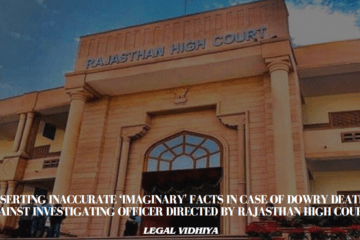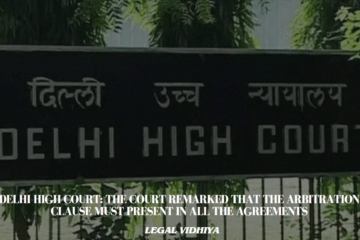
In a recent case of CRIMINAL APPEAL NO.__OF 2024 (Arising out of SLP(Criminal) No. 6112 of 2022), The Supreme Court reiterates the five golden principles that need to be followed while considering circumstantial evidence.
The case originated from a complaint lodged in the court of III additional district and sessions judge, Kolar, concerning an offence punishable under section 302 of the Indian Penal Code. The appellants were convicted and sentenced by the trial court, which was subsequently appealed in the High Court of Karnataka. the prosecution’s narrative unveiled a scenario where the complainant and his father engaged in a fertilizer shop and money lending business, faced discord with one of the accused due to business losses. This discord allegedly led to enmity, prompting the appellant to conspire to murder the complainant’s father.
On the fateful day of July 7th, 2014, the deceased departed for Tholampali to recover a loan. The appellants purportedly ambushed him on his way, launching a fatal assault with a chopper. Despite the deceased’s attempts to evade the attacks, the assailants succeeded in inflicting fatal injuries, resulting in his demise.
The primary issue at hand was the evaluation of circumstantial evidence presented by the prosecution to establish the guilt of the accused individuals.
The Supreme Court in its judgment referred to the case of Sharad Birdhichand Sarda v. state of Maharashtra, emphasizing on the circumstantial evidence. The court highlighted the necessity for the prosecution to establish a completed chain of circumstances leading to the guilt of the accused beyond any reasonable doubt.
The Court further referred to the case of Shivaji Sahabrao Bobade v. State of Maharashtra [(1973) 2 SCC 793 : 1973 SCC (Cri) 1033 : 1973 Crl LJ 1783], reiterated the five golden principles for proving a case based on circumstantial evidence, emphasizing the need for conclusive and consistent circumstances that exclude any hypothesis except the guilt of the accused.
This landmark judgment not only sets a precedent in criminal law but also underscores the critical importance of meticulously establishing a watertight case when relying on circumstantial evidence in criminal proceedings.
CASE NAME:
RAGHUNATHA AND ANOTHER v. THE STATE OF KARNATAKA CRIMINAL APPEAL NO.__OF 2024 (Arising out of SLP(Criminal) No. 6112 of 2022) 2024 INSC 238
NAME: Sreenishanka Vadiraj, 6th sem, BBA-LLB(Hons.)PES University, Bangalore, Intern under Legal Vidhiya.
Disclaimer: The materials provided herein are intended solely for informational purposes. Accessing or using the site or the materials does not establish an attorney-client relationship. The information presented on this site is not to be construed as legal or professional advice, and it should not be relied upon for such purposes or used as a substitute for advice from a licensed attorney in your state. Additionally, the viewpoint presented by the author is of a personal nature.




0 Comments